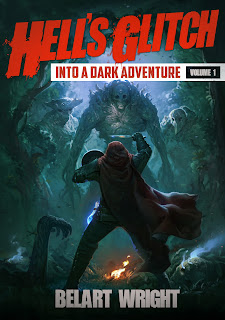Fun Fact:
Amherst took Louisbourg as the first prong of the British assault. The second prong of Pitt's vision for the conquest of Canada was led by Major General James Abercromby. At 52 years of age with many years of military experience, Abercromby was a methodical plodder who had never had an independent command.
Montcalm himself went to Carillon as the British massed their forces near Albany for the strike north.
George Augustus, viscount Howe, was appointed as Abercromby's second-in-command. His brother Richard was Admiral Howe, and his brother William Howe would lead the British Army in America 20 years in the future. Lord Howe was the idol of the army, being everything Abercromby was not. Also figuring prominently among the soldiery was Robert Rogers, commissioned as Major of the Rangers in His Majesty's service. Howe impressed the rangers' style upon the other units of Abercromby's command--including cutting the brims from their hats and cutting their coats to the waist.
The British advanced and Howe sent the rangers ahead to reconnoiter Fort Carillon, where Montcalm was scraping together 4,000 men to counter the largest army yet assembled in America--6,000 British Regulars and 9,000 Colonials--advancing on his position. Lord Howe led the fleet of 900 bateaux and 135 whale boats down Lake George, which included in its vanguard Lieutenant Colonel Thomas Gage, who had led Braddock's advance across the Monongahela. Like the Greeks before Troy, they came ashore flush with hopes of conquest.
The advance guard landed, pressed forward toward the fort, and ran into French forces hurrying toward the fort as well. After a sharp skirmish, the French fled, but Lord Howe had been killed with a bullet in the chest. With the death of the most competent leader among their force, the British, only two hours march from the fort, experienced a minor collapse and spent two days disentangling themselves from the wilderness.
Montcalm, the Priam of our tale, profited by Abercromby's delay to construct entrenchments and abatis at the approach to the fort. He positioned most of his troops along this defense, leaving some in the fort to man the artillery. Although his flanks were undefended, he foresaw Zeus blinding the enemy's eyes to his weakness.
July 8, 1758, Abercromby sent a junior officer forward to evaluate the defenses. The officer reported the defenses could be taken by a frontal assault. While his artillery remained at the landing site--like Achilles in his tent--Abercromby formed his men in ranks three deep for the assault on the defenses, while Montcalm looked on with joy that the British were following the script he had prepared. Montcalm would've offered hecatombs to Zeus if he had had any to spare.
Abercromby sent his regulars forward against the entrenched enemy whose fire shredded his troops before they got close enough to deliver the customary volley and rush the defenses. After loosing 2,000 men to this meat grinder, this stationary Hector, the British retreated all the way back to the boats like the panicked Achaeans.
On July 9, the remains of the largest British army assembled on the continent fled across Lake George from an enemy force a quarter of its size and which wasn't even pursuing. Troy remained defiant, and Montcalm declared victory.
--I've consulted my highlights from The French and Indian Wars: Deciding the Fate of North America by Walter R. Borneman, Chapter 8 for this fun fact episode.
________________________









.jpg)



